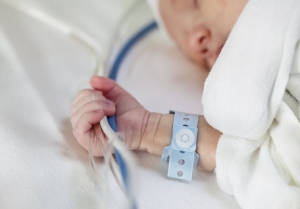 If you’ve got a baby in the neonatal intensive care unit, your first thought is probably not, “Does my child really need that antireflux medication?”
If you’ve got a baby in the neonatal intensive care unit, your first thought is probably not, “Does my child really need that antireflux medication?”
But antireflux meds in for newborns topped the list of five overused tests or treatments released Monday as part of the “Choosing Wisely” program. About one-third of health care spending in the United States is overuse and waste, costing about $2.7 trillion a year.
“With newborns, there’s very little evidence that routine use will improve the symptoms,” says DeWayne Pursley, chief neonatologist at Beth Israel Deaconess Medical Center and senior author on the paper, which was published in Pediatrics.
In other words, babies spit up. There’s evidence that giving newborns antireflux medications doesn’t reduce the risk of apnea or low blood oxygen, the two problems it’s typically prescribed for in preemies. And it could cause long-term harm, Pursley says.
The other four tests and treatments to avoid doing routinely are:
• Antibiotics for more than 48 hours in babies who don’t have evidence of a bacterial infection.
• Overnight breathing studies for assessing apnea in premature infants before they go home.
• Daily chest X-rays for infants who are intubated, unless there’s a specific problem that needs to be investigated.
• Screening brain MRIs when babies reach their term equivalent age, or at discharge from the hospital.
That’s not to say that no infant should ever get these, Pursley says. “But our gripe, if you will, is their routine use.”
So what are parents to do when they’ve got a child in the NICU and they’re facing dozens of mysterious tests or treatments? Parents can ask if they can do rounds with the medical team, Pursley says, which is an increasingly common practice in NICUs. That way they’ll hear how the care team assesses the child’s progress and how they do their planning. “It provides
